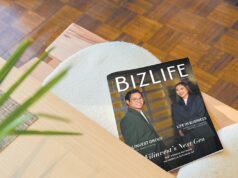As borders close and employers collapse, OFWs play the waiting game
By Luz Wendy T. Noble, Reporter
CRUISE SHIP singer Harry G. Bayona was home for a two-month holiday, which has since dragged on for more than half a year, and counting.
“It’s really stressful because this is how I make a living now,” Mr. Bayona said in a Zoom interview, noting that he had hoped his cruise career was a turning point for his ambitions to make it overseas.
When the COVID-19 outbreak turned into a pandemic, Gilbert A. Gayeta, a technician, was among the 300 employees sent home from a single company in Saudi Arabia.
“Operations started again and the company informed us that we can come back soon, but our status has been on hold for the past five months,” Mr. Gayeta said in Filipino via Facebook.
Overseas Filipino Workers (OFWs) have been a lifeline for the economy, but the pandemic has sent them on a rough — and uneven — ride. Health care workers were suddenly in demand all over the world, but faced caps on their overseas deployment. Workers in the Middle East became collateral damage as the oil markets collapsed. And cruise ships, which became notorious as vectors for infection, have been tied up in port for months.
The World Bank estimates that the Philippines is the world’s fourth biggest destination of worker remittances, behind only India, China, and Mexico. The impact of the pandemic has been severe, with May cash inflows declining 19% year-on-year to $2.106 billion the largest drop since the 33.5% contraction posted in January 2001.
Driving the decline was job losses in the OFW-dependent industries like oil, shipping, and cruise lines. The Department of Foreign Affairs (DFA) tally for repatriated workers toped 254,000 as of Nov. 15. Those numbers are expected to rise to about 300,000 by the end of 2020.
While OFW deployments have since recovered on a month-on-month basis from the April low, when only 1,794 OFWs left the country, deployments are still nowhere near their 2019 levels, based on preliminary data from the Philippine Overseas Employment Agency (POEA). In the seven months to July, deployments were down 65.24% year-on-year to 484,762.
“Based on the DFA’s experience in repatriating our distressed overseas Filipinos, the pandemic’s impact had an immediate effect on the cruise line industry and on our thousands of seafarers on board ship,” Foreign Affairs Undersecretary for Migrant Worker Affairs Sarah Lou Y. Arriola said in an e-mail.
Ms. Arriola said irregular migrants or those who left the country on tourist visas to seek employment abroad were also hit hard.
“When countries started to impose lockdowns and businesses had to temporarily close shop, the already limited job market for irregular migrants dwindled further,” she added.
Analysts said that the jobs recovery for OFWs will still depend on how economies in the host countries deal with the virus.
“OFWs working in sectors that are still deemed ‘non-essential’ and involving ‘high touch’ such as hospitality will still be under threat. However, as we get to know how to act during the pandemic and as vaccines emerge, such effects will be mitigated, but not in the short term,” Asian Institute of Management economist John Paolo R. Rivera said in an e-mail.
Mr. Rivera said some countries which have contained their outbreaks, such as New Zealand and Taiwan, may provide employment prospects for OFWs.
There are some bright spots for OFWs as restrictions ease and authorities find ways to operate their economies in the “new normal.” A return to pre-COVID levels of global trade could also herald an employment recovery, ANZ Research analysts Sanjay Mathur and Kanika Bhatnagar said in a note.
In late October, the US Centers for Disease Control and Prevention laid down guidelines for a phased resumption of cruise operations, ending the run of bad news for an industry that was laid up following a no-sail order in March. But the outlook remains clouded for demand.
“Even if you have the protocols to ensure the passengers are safe… convincing them to go onboard is another…,” Levinson C. Alcantara, a director at the Philippine Overseas Employment Agency (POEA) overseeing pre-employment services for OFWs, said at a forum.
Governments are now starting to decide to open up borders in reciprocal arrangements with countries they deem to be safe, according to Christian de Guzman, senior vice-president of the Sovereign Risk Group at Moody’s Investors Service, who cited the so-called “travel bubble” arrangement agreed to by Hong Kong and Singapore.
The flip side is the inability to travel of citizens of countries where infection rates remain high, such as the Philippines, whose nationals are not allowed to enter places like China.
“If the Philippines doesn’t get infection rates under control, it could very well affect the deployment of OFWs, which could then affect the remittance of inflows going forward,” Mr. De Guzman said in a Zoom interview.
As the crisis drags on, migrant workers may find themselves at a turning point in terms of how their host countries treat them.
“Given the lessons from the pandemic, will foreigners be given access to social protection in host countries – especially less skilled workers?” Jeremaiah Opiniano, Executive Director at the Institute for Migration and Development Issues, said in an e-mail.
In the meantime, Mr. Bayona, the cruise singer, has shelved his plans to buy property this year and has tried his hand at part-time jobs while awaiting notice from his company.
“There are so many OFWs who are breadwinners and still need to send their kids to school. I’m luckier in a way as I have more wiggle room when it comes to my finances,” he said.
In Batangas, Mr. Gayeta, the technician from Saudi Arabia, is still waiting for his company to call after being on no-pay forced leave since May. He continues to support his family by selling frozen chicken and working at building sites from time to time.
In the event of the worst-case scenario — a terminated contract — Mr. Gayeta said he will likely continue to look for jobs overseas with terms of at least a year or two, to provide more continuity compared to his three to six-month stints in construction.
“I’m the eldest sibling and what I earn here is not really not enough. In Saudi, I earn a little more and I will still choose that because I can handle homesickness anyway,” he said.



